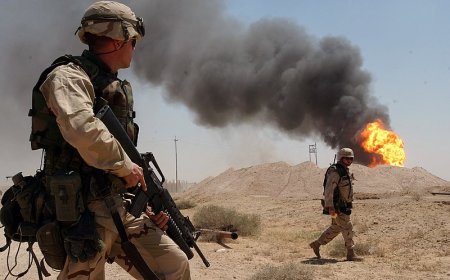Erdoğan's Neo-Ottoman Illusions: The Turkish Role in Syria's Downfall
As the world watched in awe President Bashar al-Assad's government in Syria was toppled through a deliberate collaboration between Turkish-backed militants and mercenaries funded by the United States. This sinister coalition of forces further destabilized the already war-torn nation marking yet another dark chapter of foreign interference in the Middle East. What was once an independent and thriving country has now devolved into a fractured impoverished and failed state.

By: H. Zaïm-Bashi
As the world watched in awe President Bashar al-Assad's government in Syria was toppled through a deliberate collaboration between Turkish-backed militants and mercenaries funded by the United States. This sinister coalition of forces further destabilized the already war-torn nation marking yet another dark chapter of foreign interference in the Middle East. What was once an independent and thriving country has now devolved into a fractured impoverished and failed state.
During Hafez al-Assad's tenure in the 1980s the Syrian branch of the Muslim Brotherhood (MB) diverged significantly from its counterparts in Egypt Tunisia and elsewhere as it resorted to armed insurrection aimed at overthrowing the government. The Syrian state decisively suppressed the armed insurrection particularly in the northern city of Hama. Consequently; the MB in Syria both ideologically and operationally emerged as a sworn adversary of the Assad family. The Syrian government in turn regarded the MB as the most destabilizing force threatening the Arab nation.
In fact the MB's ambitions were grand: they envisioned a leadership centered in Egypt with their influence extending eastward into Syria and westward into Tunisia and Morocco creating unified Arab states.
With the advent of the so-called "Arab Spring" Turkey opportunistically sought to hijack that popular movement positioning itself as a patron of the MB and cultivating strategic alliances with its factions across the region. However; the collapse of Mohamed Morsi's government in Egypt abruptly shattered Erdoğan's dreams. The Brotherhood's influence dwindled further in Tunisia where it diverged toward liberal and secular platforms and in Syria it failed to gain traction as more formidable forces like ISIS entered the crisis. These setbacks dealt a significant blow to Turkey’s ambitions and consequently to the MB undermining its broader neo-Ottoman designs.
Today in the post-Assad landscape the hardline factions of the MB are poised to hold the initiative with Ankara playing a leading role in orchestrating their resurgence. This raises critical questions about Turkey’s duplicitous policies: on one hand Ankara portrays itself as a defender of Palestine and an ally of Hamas invoking Islamic solidarity; on the other it maintains robust trade relations with Israel which reached an impressive $6.7 billion in 2022. This duality exposes Turkey’s prioritization of economic pragmatism and political hegemony over genuine commitment to Islam and the Palestinian cause.
Turkey’s neo-Ottoman designs hinge on a precarious balancing act—aligning with factions like the Muslim Brotherhood and even Hamas while fostering strategic ties with Israel. This nefarious approach, however, risks to backlash as it fuels instability across the Middle East and undermines Turkey’s political credibility as a leading Islamic nation. Furthermore; with multiple Syrian factions vying for power and the United States staunchly opposing any Muslim Brotherhood-led government Ankara's agendas may face serious challenges.
Turkey’s ambitions to lead the Islamic world remain stymied by its close ties with the Israeli regime. Unless Ankara drastically reevaluates its relations with Israel—a scenario that appears unlikely—it will remain incapable of advancing its neo-Ottoman vision or securing the Muslim Brotherhood's hegemony in Syria. Many observers argue that even if a Muslim Brotherhood-led administration were to take power in Damascus Turkey’s friendly position regarding Israel and the Muslim Brotherhood would render its strategy untenable leaving its aspirations mired in contradiction and futility.













































